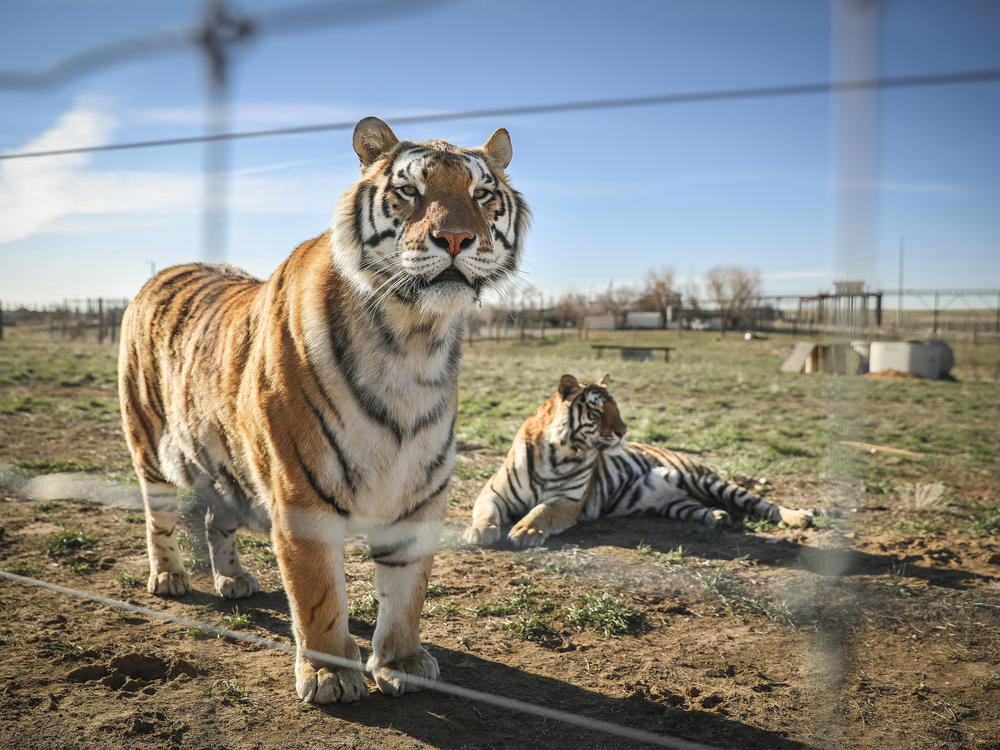Section Branding
Header Content
Feds Seize 68 Lions, Tigers And Other Big Cats From Tiger King Park In Oklahoma
Primary Content
Federal agents have seized 68 lions, tigers and other big cats from the Oklahoma couple who took over an animal park featured in the Netflix documentary series Tiger King.
The Justice Department said Thursday that a jaguar and lion-tiger hybrids were also among the animals that authorities recovered from the Tiger King Park in Thackerville, Okla., over three days this month.
The park is owned by Jeffrey and Lauren Lowe, who appeared in the popular Tiger King documentary, which starred a big-cat collector and eccentric named Joe Exotic. Joe Exotic, whose real name is Joseph Maldonado-Passage, is currently serving a 22-year federal prison sentence after being convicted in a murder-for-hire scheme and of federal wildlife violations.
The Lowes, meanwhile, were sued by the Justice Department in November for allegedly violating the Endangered Species Act and the Animal Welfare Act. The couple is accused of exhibiting the animals at Tiger King Park without a license and of failing to provide adequate care for them.
An affidavit says the U.S. Department of Agriculture's Animal and Plant Health Inspection Service has conducted three inspections at the park since December to check on the animals' welfare.
The document says inspectors found that the animals were receiving a nutritionally deficient diet, inadequate and untimely veterinary care, and insufficient shelter from the weather.
"The Lowes have consistently failed to provide their Big Cats with a diet containing the necessary nutrients to allow them to grow properly and thrive," the affidavit says.
During a December 2020 visit to the park, inspectors found that boneless chicken was the only food available for the big cats, which doesn't fulfill the animals' nutritional needs. When asked for a list of supplements that the animals were receiving, the facility named a horse weight-gain supplement called Gleam & Gain, which does not provide the necessary diet for big cats, according to authorities.
The affidavit says the impact of the poor diet could be seen in the animals, several of which appeared to be suffering from stunted growth, lameness, neurological abnormalities and skin lesions.
Inspectors observed rotting animal carcasses in some of the big cats' cages and a pile of rotting carcasses elsewhere on the park's grounds. The failure to properly dispose of the bones has attracted flies and other pests that routinely bite and attack the lions, tigers and other animals, according to court documents.
This month, a federal judge found the Lowes in contempt for violating an order about the big cats and their care.
"This seizure should send a clear message that the Justice Department takes alleged harm to captive-bred animals protected under the Endangered Species Act very seriously," said Jean E. Williams, the acting assistant attorney general for the department's Environment and Natural Resources Division.
Officials say the seized animals will be moved to preserves where they will receive care and rehabilitation.
Copyright 2021 NPR. To see more, visit https://www.npr.org.

